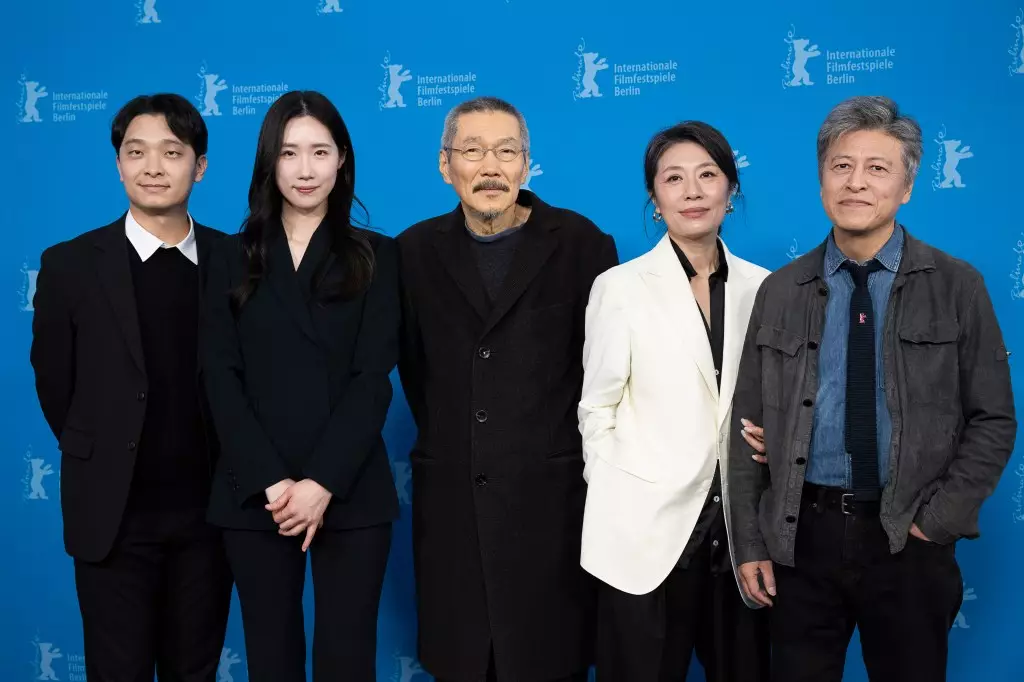For over 30 years, Kwon Hae-hyo has been a stalwart in the ever-evolving landscape of the Korean film industry. As a distinguished actor, he has contributed to its transformation into a global cultural phenomenon. Having worked with notable directors and actors, Kwon has also formed a significant partnership with filmmaker Hong Sang-soo, featuring in 12 of his films. This long-standing collaboration exemplifies Kwon’s artistic dedication and adaptability to the dynamic demands of contemporary cinema.
Kwon’s film credits are diverse, showcasing his versatility across genres. He appeared in high-profile projects like the sequel to the blockbuster Train to Busan, titled Peninsula, as well as Bogota: City of the Lost—a gripping crime thriller—and the legal drama Juror 8. Each of these roles reflects the rich tapestry of narratives that have emerged in Korean cinema, pushing the boundaries of storytelling and audience engagement.
Kwon’s attendance at the Berlinale for the world premiere of Hong Sang-soo’s latest film, What Does That Nature Say to You, illuminates another layer of Kwon’s career. Talking about his experiences working under Hong’s innovative direction, Kwon reveals a unique filmmaking approach that significantly contrasts with conventional practices. “With other films, you know from start to finish what it’s going to be,” Kwon observes, emphasizing the unpredictable nature of working with Hong. “When I film my scenes, I don’t know how it’s going to turn out. It’s about living in the moment.”
Hong is known for his long takes that invite audiences into intimate human experiences, enabling actors to explore their characters without predefined boundaries. Kwon appreciates the freedom that stems from this unpredictability and contrasts it with the rigid structure that often defines mainstream filmmaking. He points out that while many actors enter a rehearsal with a sense of anxiety about their performance, Hong’s streamlined process reduces this pressure considerably—scripts are frequently handed out on the day of shooting, an unconventional but refreshing method that allows actors to immerse themselves fully in the present moment.
Linearity and Improvisation in Hong’s Films
Interestingly, Kwon notes that despite their seemingly spontaneous filmmaking process, Hong Sang-soo’s films are characterized by meticulously crafted dialogue. In fact, Kwon claims that the instances of ad-libbing in Hong’s works are almost non-existent. “Out of all 30 films that he has made, if you put together all the lines that came from improvisation and not the script, the total will probably be less than a minute,” Kwon explains. This meticulous attention to detail further reinforces the notion that while Hong’s film sets may exude a relaxed atmosphere, the performances must remain disciplined and precise.
This brings to light the fine line between spontaneity and calculation in the art of acting. Kwon’s experience highlights his commitment to portraying authentic emotions that resonate with the audience—his performances are not just expressions, but deeply nuanced studies of character that reflect a larger socio-cultural context.
Equally vital to Kwon’s career longevity is his engagement with social causes. His active involvement with NGOs has offered him a broader societal perspective that transcends the superficiality often associated with the entertainment industry. “I feel like I am living not only as an actor, but as a person in society,” he states, indicating that his connection with various societal issues enriches his work. It serves as a reminder that artistry is inextricably linked to the context in which it is created—something that resonates deeply in Kwon’s performances.
As he reflects on his journey, Kwon grapples with the question of what sets him apart from the multitude of actors in the industry. “I don’t try to be different; I’m just trying to be myself,” he asserts. This ethos underscores his belief that authenticity is crucial in an industry rife with imitation and pretense.
Kwon’s perspective on the evolution of Korean cinema highlights the intersections between socio-political changes and filmmaking. He recognizes that the growth of the film industry has paralleled significant shifts in Korean society, particularly after the end of the authoritarian regime. “It’s important that movies are not about dreams or unrealistic lives; they have to be about society and reality,” he insists. This viewpoint echoes the sentiments of many contemporary filmmakers who strive to reflect the complexities and dynamism of everyday lives in their narratives.
Kwon Hae-hyo’s lengthy career and unique experiences with visionary filmmakers like Hong Sang-soo offer invaluable insights into the essence of Korean cinema today. Through his unyielding commitment to authenticity, and his deep engagement with societal issues, Kwon exemplifies how cinema can be a powerful vehicle for genuine human connection and reflection in a rapidly changing world.

